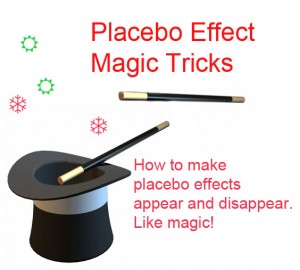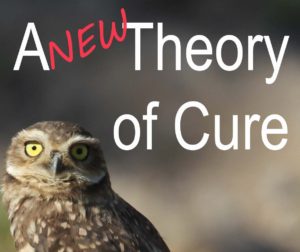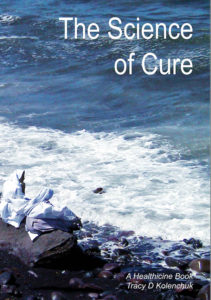 Maybe you’ve heard of ‘placebo effect’. Placebo effects are, according to the Oxford dictionary of the English language: “a beneficial effect produced by a placebo drug or treatment, which cannot be attributed to the properties of the placebo itself, and must therefore be due to the patient’s belief in that treatment“.
Maybe you’ve heard of ‘placebo effect’. Placebo effects are, according to the Oxford dictionary of the English language: “a beneficial effect produced by a placebo drug or treatment, which cannot be attributed to the properties of the placebo itself, and must therefore be due to the patient’s belief in that treatment“.
First we need to clarify the error made by Oxford dictionary editors. Placebo effects do not actually require a placebo drug or a placebo treatment. Real medicines, real treatments, also have placebo effects.
The Oxford dictionary says:
| Caused by the Treatment | Not Caused by the Treatment |
- “must therefore be due to the patient’s belief in that treatment“.
There is a problem with the definition. A beneficial effect, produced by a treatment, that cannot be attributed to the treatment. It’s a paradox. Both can’t be true at the same time.
The Oxford dictionary attempts to find a way out of the paradox, explaining that the beneficial effect must be “due to the patient’s belief“. Eg. It’s all in the patient’s mind.
But this does not solve the problem. There are two situations to consider.
- The patient has a real physical problem.
- The problem is in the patient’s mind, not a real physical problem.
Let’s look at the first situation, the patient has a real physical problem, where the doctor does not have a solution. The doctor might prescribe a ‘placebo’, in the hopes that the suggestibility effect of prescribing the placebo will help the patient.
Eg. The treatment is a placebo. A benefit occurs. It’s called the ‘placebo effect’.
But it does not fit the definition of a placebo effect. The benefit was a result of the treatment. The doctor intended to provide a benefit to the patient. The patient benefited. The placebo treatment provided the benefit. By providing the benefit, it cannot be a placebo. Therefore, the effect was not a placebo effect. We’re stuck in the paradox.
Of course we are not certain, without the science of double blind clinical studies, if the benefit was provided by the suggestibility treatment (which caused a real change in the patient), or by the medical treatment (which the doctor did not understand), or by something else (which happened through the passage of time). But in all three cases, the cause of the benefit does not fit the definition of a placebo effect.
Let’s look at Situation 2. The patient has a problem, but the doctor believes the problem is not real, that it is “all in the patient’s mind“. The doctor prescribes a placebo, or a treatment that he believes will not resolve the problem. But he has some hope that the ‘suggestibility effect’ of a doctor’s prescription will benefit the patient, or that something else, due to the passage of time, will benefit the patient.
Eg. The treatment is a placebo. A benefit occurs. It’s called a placebo effect.
But this too, does not fit the definition of a placebo effect. The doctor believes the benefit was a result of the suggestibility treatment. The doctor intended to provide a benefit to the patient. The patient benefited. The placebo treatment provided the benefit. Because it clearly provided the benefit, the treatment cannot be a placebo.
As with the first situation, we’re not sure, without the benefit of double blind, clinical studies, if the patient had a real physical problem or not. Maybe the doctor’s diagnosis was wrong. Maybe there was a real problem. We’re not certain if the suggestibility provided the benefit or not. We’re not sure if the ‘fake treatment’ actually provided the benefit. And finally, we’re not sure if something else, something that we didn’t notice, caused the benefit.
But in all of these cases, once we actually identify what caused the benefit, it is no longer a ‘placebo effect’. It’s only a placebo effect if we don’t know the cause, and we’re certain what DID NOT cause it.
If it’s a suggestibility effect, it cannot be a placebo effect, assuming the suggestibility was deliberate. It’s a real effect. A real, positive effect, that we do not understand, but we know the cause. The cause was the intentional suggestion by the doctor, and the effect of that suggestion on the patient. We don’t understand how it worked. We don’t know what the patient changed, or what changed in the patient, as a result of the suggestion. But the treatment caused a real benefit.
Do real placebo effects exist? I do not believe they exist. Placebo effects are simply effects that we do not understand. Let’s look at some other examples.
Example 1:
You have a wart. It persists for months and months. And then it goes away. Was it placebo effect? Nope. Was it suggestibility effect? Nope. There was no suggestibility treatment. There was no treatment, so it couldn’t be a placebo effect.
However, it was a real effect, that we don’t understand. The wart was there, and now it’s gone. There was a cause for the wart’s cure. The cause is not known, not understood, but something real caused the wart to go away. Not a placebo effect.
Example 2: You have a wart. It persists for months and months. And then, on a whim while you are brushing your teeth, you try putting toothpaste on it. And it goes away. Was it placebo effect? No.
- It was a real effect. Yes, the wart went away after a treatment.
- Do we know what caused the effect? Maybe, maybe not. We’re not sure if the toothpaste made it go away.
- Do we know that the treatment DID NOT cause the wart to go away? No, we do not. We might do a double blind clinical study to establish that the toothpaste does, or does not cure warts, but right now, we simply don’t know.
We know it was not placebo effect. There was no suggestibility. There was a real cause of the wart cure, but we don’t know, for certain, the cause of the cure.
Example 3: You have a wart. It persists for months and months. Then our great aunt tells you to put toothpaste on it. You put toothpaste on it, and it goes away. Is it placebo effect?
- It is a real effect. The wart went away after a treatment.
- We don’t know what caused the effect. It might have been the toothpaste. It might have been the suggestibility effect of your great aunt. It might have been something else. Maybe it was the something else that caused the effect in Example 1. Or maybe something completely different. We don’t know.
- Do we know that the treatment did not cause the effect? We need to consider two treatments a) the toothpaste, and b) the great aunt’s suggestibility.
- Did the toothpaste NOT cause the effect? We don’t know. We could conduct a double blind clinical study, as suggested in example 2. But until that study is completed, we have no idea. We don’t know if the toothpaste caused the effect or not. Therefore, it is not placebo effect.
- Did the great aunt’s suggestion, NOT cause the effect? Careful now. Placebo effect is defined as “which cannot be attributed to the properties of the …treatment”. The great aunt’s suggestion was part of the treatment. Maybe the great aunt’s powers of suggestion caused the effect. Maybe it didn’t. But, a placebo effect only exists if we DO NOT BELIEVE the treatment caused the effect.
- Was the effect “due to the patient’s belief”? We have no evidence to support this theory. Therefore, it cannot be a placebo effect.
Now. I know what you’re thinking. Did he shoot six shots? or only five? To tell the truth, I lost count myself. But you have to ask yourself, do you feel lucky?
Can you define an example, where a placebo effect occurs, that does not break the definition of ‘placebo effect’ in the Oxford dictionary?
I can’t. I don’t believe you can either.
Why not? Because placebo effects, as we currently explain them, simply do not exist.
It is not possible to have a beneficial effect, caused by a treatment, that cannot cause the effect.
It is not possible to have a real effect that is ENTIRELY due to the patient’s belief in the treatment. The effect might be initiated by the patient’s belief in the treatment, but to have a real effect requires more than ‘belief’, it requires action, unless we believe in mysticism, spoon bending, and mind over matter.
What are placebo effects? Placebo effects are simply positive effects that we do not understand.
If we want to understand them, we need to study them as individual effects, not sweep them away with rationalizations like “it’s all in your mind“, it’s just a “placebo effect“, or a “suggestibility effect.” The research study On Suggestibility and Placebo found “our findings tentatively accord with the notion that placebo response likely involves a complex, multifaceted interaction between traits, expectancies, and contexts.” Seriously? They authors did not consider the simple fact that they might have encountered simple effects where they did not account for the real cause.
We can eliminate every placebo effect, by learning, understanding the real cause of the effect.
Every patient benefit has a real cause. Placebo effects are not real causes, they are fake excuses. Excuses to not examine the details of the situation. Excuses to avoid searching, understanding, learning.
We need to get rid of the mysticism of placebo effects, if we are to create a science of medicine.
to your health, tracy
Tracy is the author of two books about healthicine:


